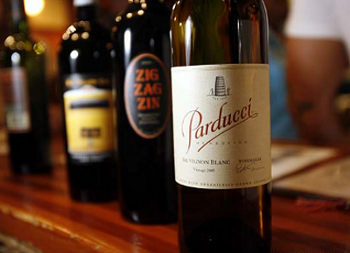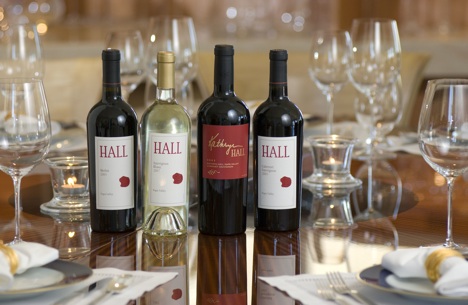
(Photo: Parducci, a winner of the Botanical Research Institute's Sustainable Winegrowing Award)
By Rita Cook
It’s currently the only international award of its kind being given for sustainable winegrowing. Since 2010, Fort Worth’s Botanical Research Institute of Texas (BRIT) has taken a leading role in implementing sustainable practices in winegrowing hoping to attract to its program progressive wine organizations from around the world that practice "ground to glass" sustainability.
“We define “ground to glass” sustainability as practicing sustainable techniques in both winegrowing and winemaking as well as aiming to achieve a balance between ecosystem stewardship and production,” says Dr. Sy Sohmer, President and Director of BRIT.
With a history in recognizing environmental accomplishments, Sohmer says that in 1995 BRIT established their awards program to honor individuals and organizations whose environmental accomplishments and leadership best reflected BRIT’s core principles of conservation, sustainability and wise stewardship of the land. Their first award, the International Award of Excellence in Conservation, is now in its 18th year.
Recipients include conservationists, scientists, philanthropists, government leaders including a head of state and a Pulitzer Prize winner. The 2012 recipient is Ted Turner for his achievements in grassland restoration and biodiversity conservation.
“Two years ago, recognizing the natural connection between botany and winegrowing, Dwight Cumming, a BRIT board member proposed awarding a wine organization for its sustainable practices with the International Award of Excellence in Sustainable Winegrowing,” says Sohmer.
And so, the new award was born.
In its third year the competition begins in November with a Call for Entries and a deadline for submission of March 31. The basis for competition includes a mixture of objective sustainable practices in the categories of air, land, and water for both winegrowing and wine making; social responsibility practices; as well as a subjective element being wine taste.
“Our judging committee is comprised of specialists in each of the categories,” Sohmer explains. “Judging occurs from April to June with the winner is announced in mid-July. The recipient comes to Fort Worth in October to receive their award.”
The first two awards have gone to Parducci Wine Cellars and HALL Wines, both of California.
 (Photo: HALL Wines, another of BRIT's award winners)
(Photo: HALL Wines, another of BRIT's award winners)
Sohmer adds that, while he is not sure if other organization will follow with this type of award, he does know that consumers are becoming more aware of taking care of the environment and are showing a preference for organizations that adopt sustainable practices.
“The topic of sustainability, as evidenced by the sustainability theme of the 2012 FIVS Global Trade Policy Conference, is a real opportunity for industries and an element that will need to be incorporated not only in the wine and spirits industries, but all industries.”
Indeed, the international award has been recognized around the world and the organization was recently invited to speak about its International Award of Excellence in Sustainable Winegrowing Award during the 2012 FIVS Global Trade Policy Conference in Brussels, Belgium in March.
"BRIT's International Award of Excellence in Sustainable Winegrowing is unique in its purpose, and we are very excited to help promote the concept of sustainable winegrowing to our member organizations," said Bennett Caplan, the Head of Secretariat of FIVS, a Paris-based federation. "The BRIT award comes at a most opportune time for wine growers around the world. Sustainability is a major topic of study and discussion in the industry, and it is the focus of the FIVS 2012 Spring Conference.
Founded in 1987, the Botanical Research Institute of Texas is an international, scientific research and learning center focused on conservation, knowledge sharing and studying the diversity of plant life. BRIT conducts extensive global research, including major projects in Texas, Europe, Peru, and the Pacific Islands. In the last 10 years, BRIT scientists have located and described scores of species previously unknown to science. BRIT's herbarium is among the largest in the United States and is the largest U.S. herbarium not part of a university, botanical garden, or broader natural history museum.
In May of 2011, BRIT moved into its new USGBC LEED Platinum certified headquarters in Fort Worth.
“It’s BRIT’s hope in the coming years to honor progressive and passionate wine organizations from around the world and pay tribute to their sustainable accomplishments,” Sohmer concludes. “The end objective is to select a progressive wine organization whose sustainability practices best reflect BRIT’s core principles of conservation, sustainability and wise stewardship of the land.”
For more information visit www.brit.org.
Rita Cook is a freelance writer who has worked as a special Contributor to The Dallas Morning News and other major publications.









